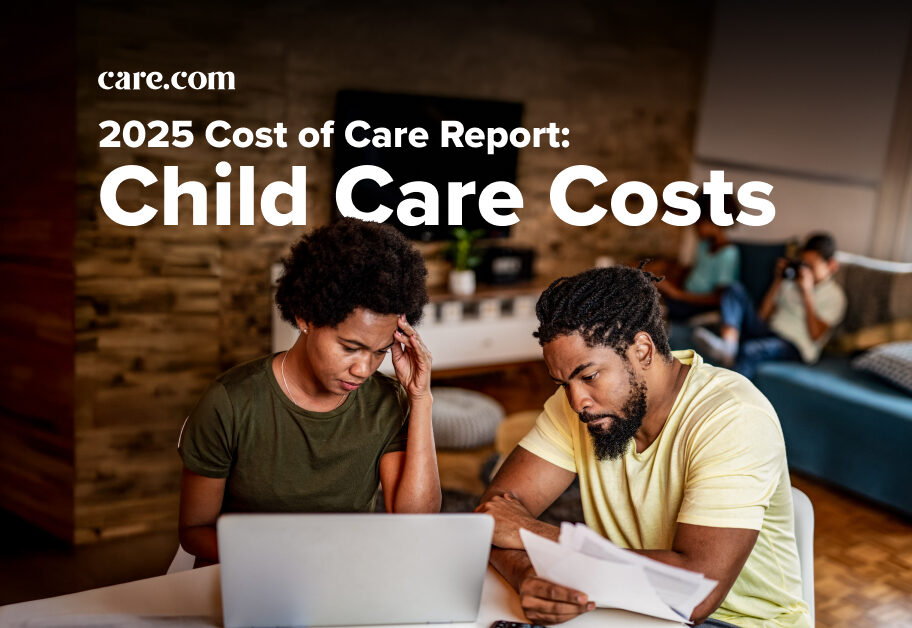In today’s deeply polarized climate, political differences are testing our relationships with friends, family and even clients and coworkers. The strain is undeniable, and the emotional toll is heavy — and if we’re honest with ourselves, it’s leaving many of us feeling hurt and uncertain about how to reconnect.
Few of us truly want to experience this much conflict. Alienation from people we are close to feels lonely and disorienting, so the question becomes: how can we approach these challenges thoughtfully when we gather with friends, family and the people at work? Experts share practical advice for how to navigate political discussions, maintain respect and protect the relationships that matter most.
How to approach conversations about politics
Is it best to simply avoid all political conversations when you have different political views? That depends, says Dr. Natasha Sharma, a practicing psychologist and creator of The Kindness Journal and The 8-Hour Therapist. ”If you are quite polarized in your opinions, it might be wise to avoid bringing up the subject of politics unless all individuals are able to express their opinions respectfully … and accept one another’s right to an opinion.” It’s possible, she says, but it’s a challenge.
Definitely avoid political discussions if you can’t have them in a healthy, respectful way. You know your conversation is unhealthy and disrespectful if either or both of you are being insulting, condescending, belligerent or domineering, explains Sharma. “And this can be particularly common at a time in history such as this one, when political opinions are more polarized than they have ever been in recent history,” she says.
If you do talk politics, when and how should you engage?
According to Leslie Hackett, a marriage and family counselor practicing in Winnipeg, Manitoba in Canada, that depends a lot on why you want to have that conversation. “It’s important to keep in mind the question of what you hope to accomplish.” Are you trying to change someone’s mind? Don’t set yourself up for disappointment. The truth is, these conversations do not change minds. “In letting go of that expectation, we can protect ourselves from frustration and disappointment,” Hackett says.
A better reason to have these difficult conversations is to gain a better understanding of someone else’s perspective. Sharma recommends creating a safe space for those conversations by engaging people we trust will not demean or degrade us. “We need to be able to feel safe and know that others will hear and consider our thoughts, and vice versa. Express your opinions thoughtfully and with respect. And then be prepared to listen to and consider what others have to say as well.” No insults or name-calling. And if someone insults you or calls you stupid or ignorant for your opinions, that conversation is over. You shouldn’t have to tolerate that treatment for the sake of learning, growth or staying connected.
Tamara Afifi, professor and vice chair at the Department of Communication at UC Santa Barbara, recommends focusing on shared values. For example, in a family that identifies as small business owners, shared concerns over the viability of small businesses could bring people from opposite political sides to common ground.
It helps to understand where people are coming from in terms of their identity and what triggers anger. A lot of us are super uncomfortable with uncertainty, and we’re worried about the future. “Usually anger really isn’t about anger; it’s about fear,” says Afifi. “So, what’s below the anger? What are people afraid of, and why does it make them so angry when they talk about these issues?”
She suggests framing your political conversations around your feelings rather than opinions: “I’m getting angry because I’m afraid this will happen,” or “I’m feeling really out of control because I’m really scared about this.” It’s more effective, she says, because people are less threatened by these vulnerable admissions about our fears. As counterintuitive as that sounds, “it’s less personal and allows us to externalize the issue we disagree over.”
What to try before breaking up over politics
In many cases, differences in a marriage or partnership can be healthy, but having opposite views on politics is particularly difficult, says Afifi, who led a study on such couples during the transition to the Trump presidency. “It’s also rare. Only 12% of married couples have opposing political views,” she notes.
But for that 12%, “In marriage, making [politics] a taboo topic can be actually useful if you are that different.” In other words, if talking about politics causes chronic conflict, this becomes one of the rare cases when avoidance is actually useful. Instead, try to focus more on values you share and on what makes you feel connected. “We just think everyone is so different from each other when we haven’t taken the time to really find the things that bind us together.”
Sharma agrees. It’s important for couples to align themselves with shared core values. Disagreements are natural and inevitable, but you must be respectful. “Ensure your opinions are not empty ones but informed from good, solid, fact- or evidence-based data and information,” she advises. “Then listen to your partner’s opinions as well. Give them a chance to convince you otherwise. It takes a very strong person to do that.” If, after you’ve both heard each other out, you still remain firm in your respective opinions, “say so calmly and firmly, and then move on to a new topic.”
How to avoid losing friends and family over politics
It’s hard to say what’s more difficult, conflicts with friends or with family members. For Julie, it’s friends. “At least with family, you’re glued by blood,” she says. It hurts to become alienated from her “chosen family” of friends.
For Afifi, dealing with political polarization within the family is more difficult because those relationships aren’t voluntary, unlike friendships.
Regardless, if you want your relationships to survive in a polarizing political climate, it helps to actively maintain them simply by having fun together. “If we can engage in activities together and find common ground, even when we differ, then when these elections come around, it helps us weather the storm and still keep our relationships strong,” Afifi says.
As for family politics, “if talk on politics cannot remain respectful and dignified, where everyone gets a chance to speak and voice their opinion, and everyone feels heard, it’s best to avoid the topic,” says Sharma. “Countless extended family gatherings — including several of my own — have been ruined because of heated political debate.”
But what if, despite your assiduous efforts to avoid the topic, your friends and family lack the self control to avoid talking about politics? What if you’re hearing the same rant every single time you get together? Sharma advises saying something along these lines: “‘You know, in the past, these conversations really haven’t gotten us to any place good. How about we talk about something else?’”
Or you can wait until they exhaust their rant and use the break to bring up a new topic. If they persist, Sharma says to politely excuse yourself from the conversation.
When you’re a caregiver for a client with different political views
Even if you don’t get to choose your family, most of us get to choose how much time we spend with them. But what if you’re a caretaker with a client or family who’s vocal about their opposing political views?
Mary Ellen (last name withheld), who identifies as a Democrat, has worked as a home care aid for seniors. She describes one former client as “sweet as pie,” that is, until FOX News mentioned Mexicans. “And then she was a 98-pound ball of fury and prejudice that often left me speechless.” Mary Ellen, who is not Latinx, grew up in East Los Angeles and lived in a south Texas border town for some years. These experiences had given her a different perspective on Mexico/U.S. relations.
One day, prompted by an erroneous news report, Mary Ellen elaborated on an opinion, and it didn’t go over well. Her client “responded with a bit more heat than usual, and I misguidedly pressed a point and had to dial back quickly when it was clear she was not just mad, but mad at me.” From then on, she avoided bringing up the topic.
Mary Ellen was trained to avoid talk of politics or religion, and she thinks that’s a good policy. “Things can get heated quickly and interfere with the working relationship between client and the caregiver.”
These client-caregiver differences can be challenging enough when both identify as white. “I really feel for BIPOC caregivers right now,” says Hackett, who is Black. “They’re some of the most marginalized, overworked people out there because of social inequity and the pandemic.” Political conflicts can get racially charged, which can be extra stressful for a BIPOC caregiver.
Hackett says it’s especially important for these caregivers to do what they can to take care of themselves, physically and mentally. Notice if you’re tired, hungry or under other stressors and be aware that this can make you more easily triggered. (When is that not the case for BIPOC caregivers, Hackett admits.) Still, as much as possible, get into a calm frame of mind and focus on your own self-worth. “Get in, get the tasks done and get out. It’s OK not to take in what the person’s saying.”
On the other hand, says Hackett, if you’re on more friendly terms with a client or family, you could engage by saying that the coverage of people of color on the news is very hurtful and inaccurate. Instead of blaming and labeling what they say, focus on how their words make you feel. “Sometimes the only way we can get someone to see something from our point of view is to talk, very calmly, about how those words affect us personally.”
“We need to be kinder and more compassionate with what seniors and the elderly say,” says Sharma. She notes that elders tend to be more direct and repetitive, which can add to your frustration.
“The biggest thing we can do is develop empathy and try and put ourselves in someone else’s shoes,” says Afifi. This is especially important when working with someone from another generation. Empathy doesn’t require us to change our own positions, it’s just having an understanding of someone’s different lived experience. “Try not to judge people so quickly.”
But you can have compassion while still maintaining healthy boundaries. If you’re being verbally abused, humiliated or have a hard time not taking their words personally, you may have to decide not to work with that client.
What to watch for with social media
Nowhere is the growing polarization of our culture more in evidence than in social media. And that’s by design. As we now know, it’s structured so that our individual news feeds reinforce our beliefs. But how do we find our way out of this pattern? One way, according to Afifi, might be to ask, “can we decide for ourselves what we do value?” If so, can we agree on some shared values and go from there?
This is similar to the approach taken by nonprofit organization Braver Angels. Founded by family therapist David Blankenhorn around the 2016 election, the group helps unite red and blue Americans in a working alliance to depolarize the country. According to online experience director Randy Lioz, Braver Angels workshops seek, in part, to help citizens connect around shared values. One of their central tenants is what they call “intellectual humility:” the idea that “as human beings we are inherently limited in our perspective of the world and that we should always be seeking to understand the perspectives that are forming in the lives of others.”
In other words, if we’re led by shared values and a sincere desire to connect and understand, we may feel less tempted to argue in Facebook threads.
It’s natural to feel disagreement with your friends’ opinions, but, “don’t take differences in opinion personally,” Sharma emphasizes. If someone’s post upsets or offends you, ask yourself why before sending off a knee-jerk response. Maybe it’s triggering a painful memory or an unresolved issue.
“Avoid lengthy arguments on social media,” she continues. “It’s just a rabbit hole for permanently written statements in your name with a high potential to turn inappropriate and disrespectful.” Be self-aware and avoid typing anything you wouldn’t be willing to say to someone’s face, in person. And remember that exposing yourself to valid opinions that differ from your own is vital to your personal growth.
Hard as it is to believe, we won’t feel locked in this political polarization forever. When we eventually look back on this period, how will we want to see ourselves and the way we treated other people? Who do you hope will still be in your life? Now might be a good time to take a moment and reflect on that. Focusing on our values, especially our shared values, may be the key to maintaining relationships with the people who matter most to you, regardless of your political differences.






